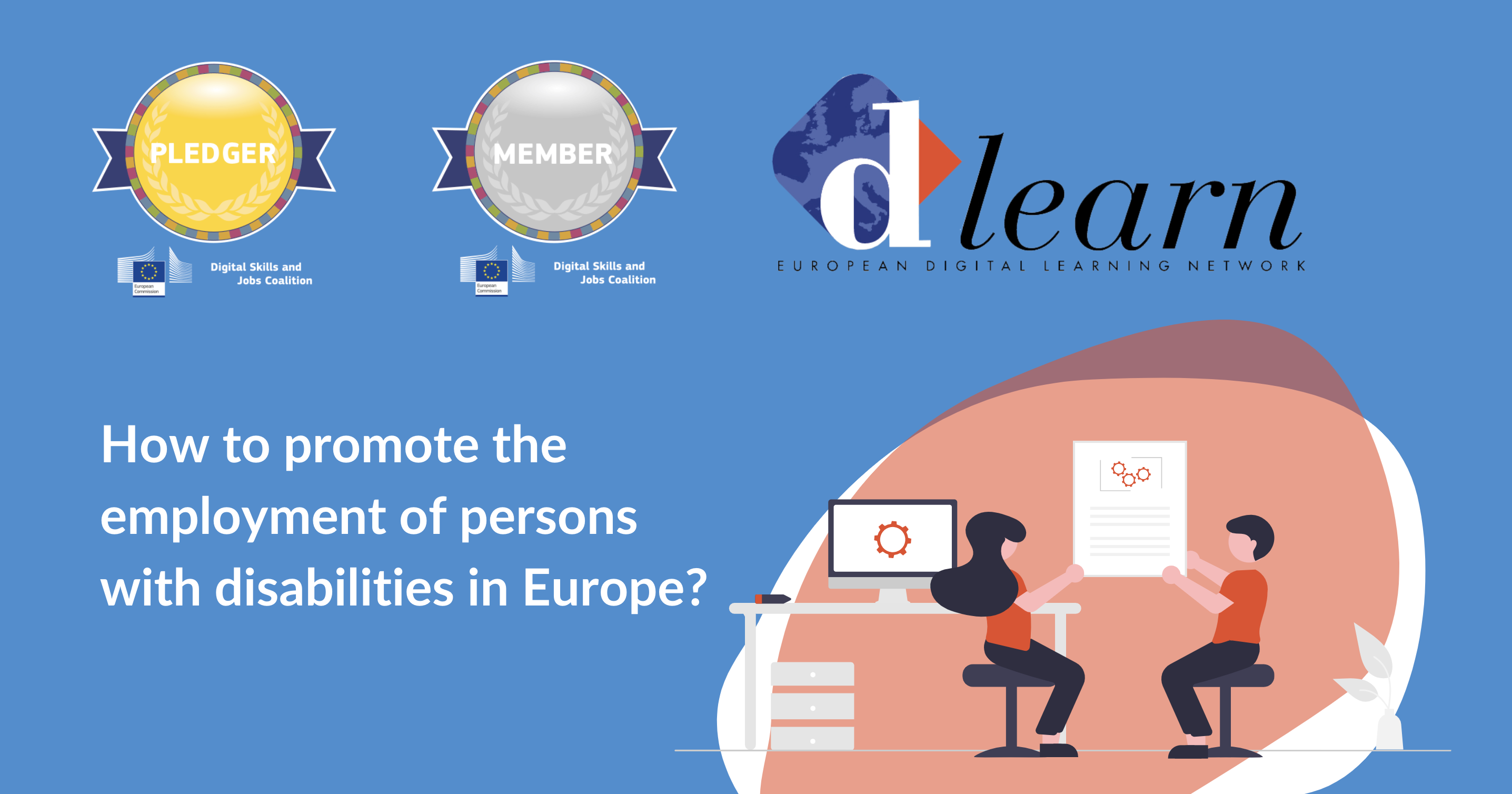The European Digital Learning Network – DLEARN – is a non-profit association aiming to embrace the challenges brought by the digital transformation in terms of digital skills mismatch and digital learning opportunities. The 47% of Europeans is not properly digitally skilled, yet in the near future, 90% of jobs will require some level of digital skills. We believe in the value of SHARING, CONNECTING, MULTIPLYING and ENHANCING the potential of our members, local territories and people.
As part of our activities, at DLEARN we undertake research, surveys, studies, and more, with the aim of continuously boosting European education and enhancing the awareness of European citizens towards the impact of digitalisation in their daily life.
Currently, DLEARN is conducting a European research aiming to investigate the barriers that persons with disabilities face to enter or stay in the labour market and whether digitalisation could contribute to reducing the gap between the employment of persons with and without disabilities. This research is supported by the European Commission in the framework of the Digital Skills and Jobs Coalition (DSJC).
The right to work and employment is a fundamental right enshrined in Article 27 of the United Nations Convention on the Rights of Persons with Disabilities (UN CRPD) and policies have been developed at the EU level to ensure the application of this right in the member states. approximately one in six people in the European Union (EU) aged 15 and over lives with some kind of disability. Nevertheless, at the EU level, only 50.6 % of persons with disabilities are employed, compared to 74.8 % of persons without disabilities[1].
Access to digital tools and technologies offers countless opportunities, but can also constitute a barrier for participation in social and economic life and can as well presents with new kinds of threats. The potential of digitalisation, therefore, needs to be analysed and understood in order to achieve social and economic progress.
There are surely many factors causing the disability employment gap. With this research, we aim to contribute to light on some of these aspects to inform policymakers and promote data-driven European initiatives on the employment of persons with disabilities. Below we provide a list of our research questions, our respondents and the hypothesis we would like to test.
Main research questions:
- What are the main barriers to employment that persons with disabilities face?
- How can these barriers be overcome and the disability employment gap be reduced?
More specifically, questions will be addressed to 3 kinds of respondents:
- Employers: what are the costs and benefits of hiring persons with disabilities? How can the employment of persons with disabilities be promoted? What are employers’ perceptions on hiring persons with disabilities?
- Persons with disabilities: what are the main obstacles and barriers to employment? What are the greatest barriers faced by persons with disabilities? How can these barriers be overcome? What are perceptions about one’s employability?
- EU disability experts and service providers: Are EU policies effectively addressing the issue of employment of persons with disabilities? What are good practices and recommendations to promote the employability of persons with disabilities?
To take part in this European research, available in 23 European languages visit https://surveyhero.com/c/Dlearn-EuropeanResearchbarrierstoemployentofpersonwithdisabilities and to have more info about it and European Digital Learning Network activity do not hesitate to write to info@dlearn.eu.
[1] https://www.europarl.europa.eu/RegData/etudes/BRIE/2020/651932/EPRS_BRI(2020)651932_EN.pdf
Discover the findings and recommendations from our comprehensive report on ‘Work Inclusion of Persons with Disabilities,’ now accessible for download here.
